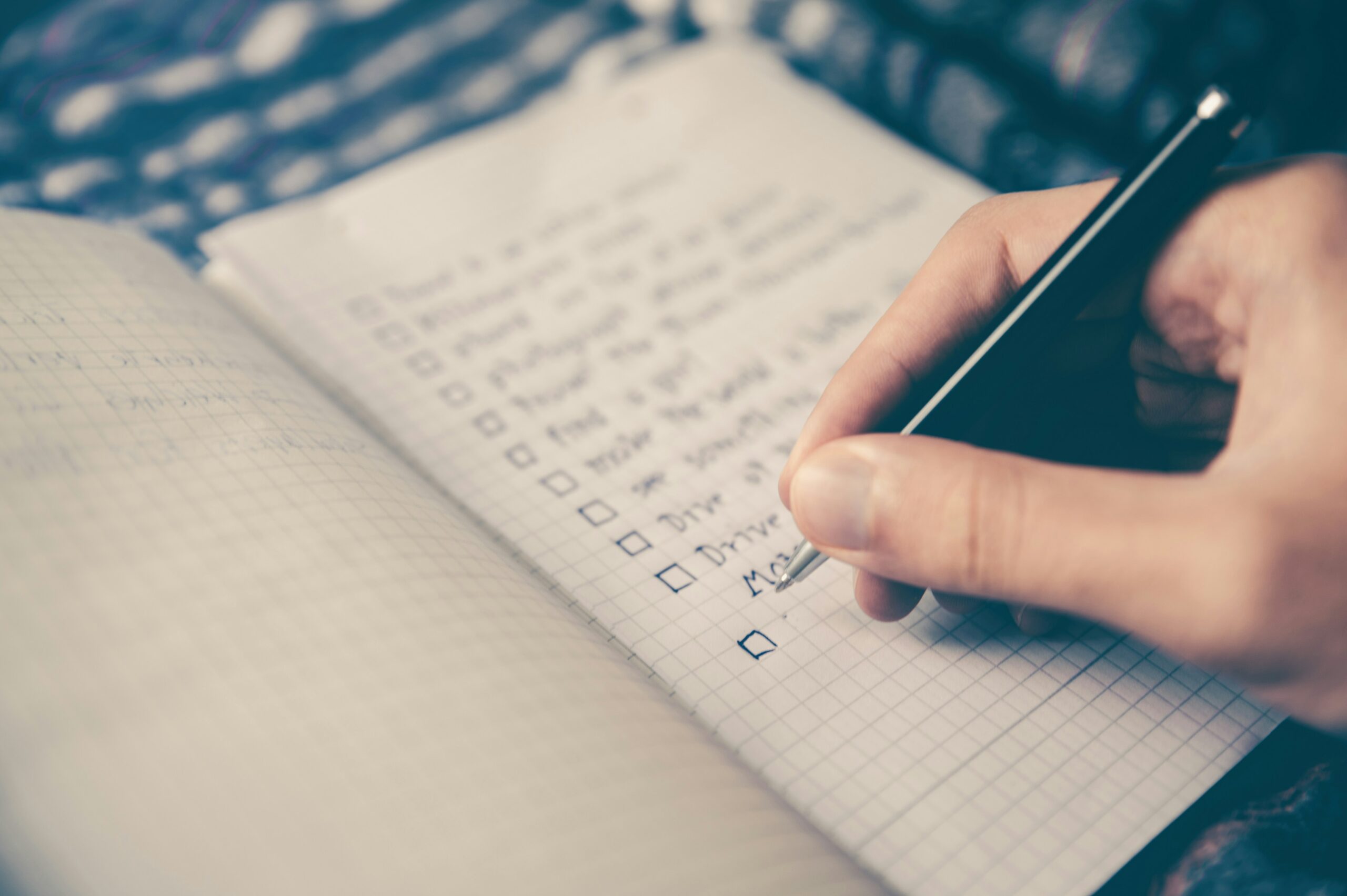The Importance of Creating a Relapse Prevention Plan
Recovery is a lifelong journey — one that requires patience, awareness, and care. While the early stages of sobriety often focus on detox and stabilization, long-term recovery depends on something deeper: maintaining balance and having the tools to navigate challenges as they arise. That’s where a relapse prevention plan becomes essential.
A relapse prevention plan is more than a checklist; it’s a personalized roadmap for wellness. It identifies triggers, builds coping strategies, and reinforces healthy habits that keep individuals grounded in their recovery. For many, it becomes a source of confidence and strength — a reminder that even when challenges appear, there’s always a way forward.
At Oasis Recovery Center, we believe that recovery isn’t just about avoiding substances. It’s about building a life filled with purpose, mindfulness, and meaning. A strong relapse prevention plan supports that goal, helping individuals live fully and authentically long after treatment ends.

What Is a Relapse Prevention Plan?
A relapse prevention plan is a structured, personalized strategy designed to help someone in recovery recognize early warning signs of relapse and respond to them in healthy, proactive ways.
Relapse doesn’t happen in a single moment. It often unfolds gradually — beginning with emotional or mental shifts before leading to physical use. A well-developed relapse prevention plan helps individuals identify these stages early and take action before a return to substance use occurs.
While every plan is unique, most include:
- Identification of triggers — internal and external factors that increase risk.
- Coping skills — healthy strategies to manage stress and cravings.
- Support systems — trusted people or groups to contact when help is needed.
- Daily wellness routines — practices that promote physical, mental, and emotional stability.
- Emergency plans — clear steps to take if relapse feels imminent.
The goal is to create a sense of structure and empowerment, not restriction. With a solid plan in place, individuals can meet challenges with awareness instead of reaction.
Why a Relapse Prevention Plan Matters
Even with strong motivation and support, recovery can feel uncertain at times. Triggers, stress, or unexpected emotions can surface without warning. A relapse prevention plan serves as an anchor — a reminder that preparation, self-awareness, and community can make all the difference.
Here are several reasons why having a plan in place is so important:
1. It Promotes Self-Awareness
The foundation of every relapse prevention plan is understanding yourself — your triggers, emotions, and stressors. When you take time to identify what makes you vulnerable to relapse, you gain valuable insight into your behaviors and thought patterns.
This awareness allows you to respond intentionally rather than impulsively. You’ll begin to notice patterns before they escalate, helping you intervene early and maintain balance.
2. It Helps You Recognize the Stages of Relapse
Relapse rarely happens suddenly. It often unfolds in three stages: emotional, mental, and physical.
- Emotional relapse might look like poor self-care, mood swings, or withdrawing from support.
- Mental relapse involves internal conflict — part of you wants to stay sober, while another part begins to crave escape.
- Physical relapse occurs when a person uses a substance again.
A detailed relapse prevention plan helps you spot the signs of emotional or mental relapse before they lead to physical use. Recognizing these early stages gives you the opportunity to reach out, reset, and reengage in recovery work.
3. It Reinforces Accountability
Accountability is a cornerstone of sustained recovery. A relapse prevention plan helps you establish clear accountability systems — whether through therapy, peer support, or trusted loved ones.
By writing down who to contact in moments of vulnerability and what steps to take, you create a built-in support structure. It’s not about punishment or judgment — it’s about connection and compassion. You’re reminding yourself that you don’t have to face challenges alone.
4. It Encourages Healthy Coping Skills
Stress, anxiety, and emotional discomfort are a natural part of life. Without healthy coping mechanisms, these experiences can become powerful triggers for relapse.
A personalized relapse prevention plan helps you build and strengthen healthy coping tools such as:
- Mindfulness and meditation
- Physical activity and yoga
- Creative expression (art, writing, or music)
- Breathwork and grounding techniques
- Regular therapy or group sessions
By identifying what works for you, these practices become second nature — helping you maintain equilibrium even in difficult moments.
5. It Builds Confidence and Empowerment
Recovery thrives on empowerment. When you know you have a plan — one that’s tailored to your unique needs — you naturally feel more confident navigating life in sobriety.
Your relapse prevention plan becomes a reminder that you are prepared. You have the tools, awareness, and community to stay aligned with your goals. Over time, that confidence builds resilience and a stronger sense of self-trust.

Elements of an Effective Relapse Prevention Plan
Every relapse prevention plan should reflect the individual creating it. However, most effective plans include several key components:
1. Identifying Triggers
Triggers can be external (places, people, situations) or internal (thoughts, emotions, or stress). Writing them out helps you notice patterns and make mindful choices.
Some common triggers include:
- Stress from work or relationships
- Celebrations or social events involving alcohol
- Certain times of year or anniversaries
- Feelings of loneliness or boredom
- Overconfidence or complacency in recovery
When you understand your triggers, you can plan how to navigate them with awareness rather than avoidance.
2. Early Warning Signs
Each person experiences early warning signs differently. Maybe it’s neglecting self-care, skipping support meetings, or isolating from friends. Identifying these signals helps you catch emotional or mental relapse before it deepens.
In your relapse prevention plan, list the early signs that mean you need to slow down, reach out, or refocus.
3. Healthy Coping Strategies
Develop a set of go-to coping tools that can help regulate stress and emotions. For example:
- Taking a mindful walk in nature
- Calling a trusted friend or mentor
- Journaling thoughts and feelings
- Practicing gratitude
- Using breathing exercises during moments of tension
These tools remind you that relief and grounding are always accessible.
4. Support Network
Your relapse prevention plan should include names, numbers, and contact methods for people in your support circle — such as sponsors, therapists, recovery coaches, family members, or supportive peers.
When challenges arise, having this list ready can make it easier to reach out rather than retreat.
5. Self-Care Routine
Recovery thrives when mind, body, and spirit are nurtured. Include daily and weekly self-care practices that help you stay balanced, such as:
- Maintaining a consistent sleep schedule
- Eating nourishing meals
- Practicing yoga or mindfulness
- Engaging in creative or spiritual practices
- Attending therapy or community groups
Self-care isn’t indulgence — it’s maintenance for your emotional and physical well-being.
6. Crisis or Emergency Steps
Even the most prepared individuals may face difficult moments. Include a step-by-step plan for what to do if cravings or relapse urges become intense.
This could involve contacting your support person, attending a meeting, visiting a treatment center, or using grounding exercises. Knowing these steps ahead of time can make all the difference when emotions run high.

Integrating Holistic Healing Into Your Relapse Prevention Plan
At Oasis Recovery Center, we approach relapse prevention through a holistic lens. Healing the mind, body, and spirit together creates the strongest foundation for sustained recovery.
Integrating holistic therapies into your relapse prevention plan encourages balance and connection. Practices like mindfulness meditation, yoga, acupuncture, sound therapy, and adventure therapy can all help reduce stress and reconnect you with your body’s natural rhythm.
When you prioritize self-awareness and emotional regulation through holistic care, your relapse prevention plan becomes not just a strategy — but a way of living.
How Oasis Recovery Center Supports Relapse Prevention
Relapse prevention begins long before you leave treatment. At Oasis Recovery Center, our compassionate team works closely with each individual to develop personalized relapse prevention strategies that reflect their goals, lifestyle, and values.
Our programs blend evidence-based therapy with mindfulness practices, creative exploration, and community connection — ensuring that recovery is as sustainable as it is meaningful.
We help clients:
- Identify personal triggers and risk factors
- Strengthen emotional regulation and coping skills
- Reconnect with purpose and self-awareness
- Build supportive networks for lasting accountability
- Continue their healing journey through aftercare and alumni programs
We stand by each person for as long as it takes, offering the guidance and care needed to thrive in long-term recovery.
Relapse Is Not Failure
It’s important to remember: relapse does not mean failure. It’s a signal — a message that something needs more attention, care, or healing. Many people experience setbacks in recovery, and each one can serve as a powerful opportunity for growth.
Having a relapse prevention plan in place ensures that if a slip does occur, you know how to respond with compassion rather than shame. The plan becomes a framework for reflection, accountability, and renewed commitment to wellness.
Building a Life Beyond Relapse
The ultimate goal of a relapse prevention plan isn’t just to prevent relapse — it’s to build a fulfilling, purpose-driven life. When your daily actions align with your values, the risk of relapse naturally decreases.
Recovery becomes less about resisting the past and more about embracing the present. You begin to find joy in small moments, connection in relationships, and peace in your own company.
Creating and maintaining your relapse prevention plan allows you to navigate life with resilience — not by avoiding difficulty, but by meeting it with courage and awareness.
Final Thoughts
Recovery is a process of rediscovery — of who you are, what you value, and how you want to live. A relapse prevention plan supports that process by helping you stay grounded, prepared, and empowered through every stage of your journey.
At Oasis Recovery Center, we’re here to help you create a plan that truly reflects your path — one that balances structure with freedom, mindfulness with action, and self-awareness with community support.
Whether you’re newly in recovery or looking to strengthen your long-term wellness, our team is ready to walk beside you — as long as it takes, whatever it takes.

Begin Your Journey with Oasis Recovery Center
If you or someone you love is seeking guidance in creating a relapse prevention plan or support in maintaining recovery, Oasis Recovery Center in Asheville, North Carolina offers individualized, holistic programs designed to help you heal and grow.
Contact us today or give us a call to learn how our compassionate team can help you develop the tools and confidence to thrive in lasting recovery.







